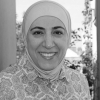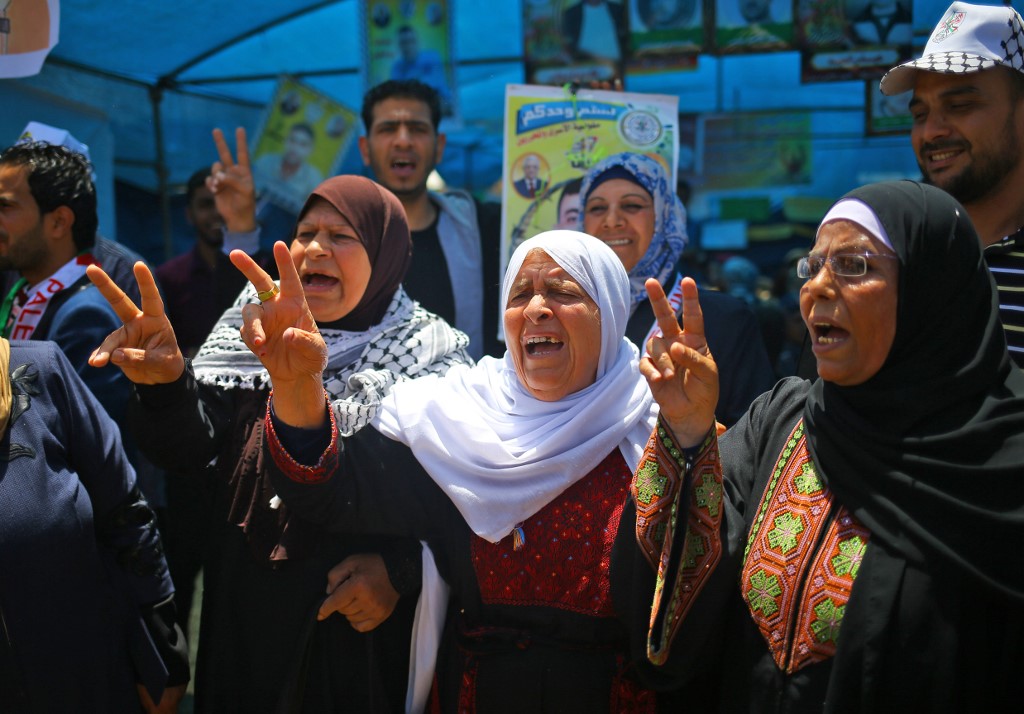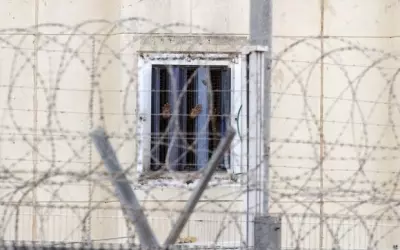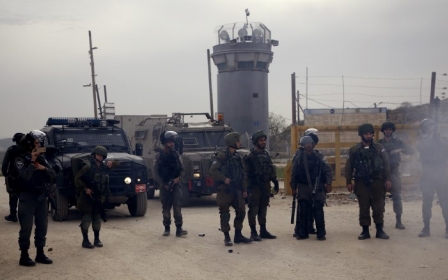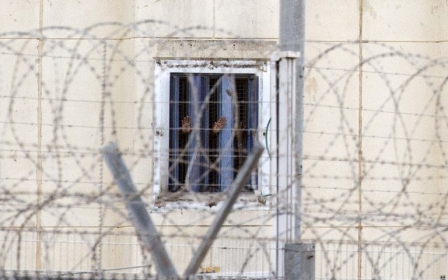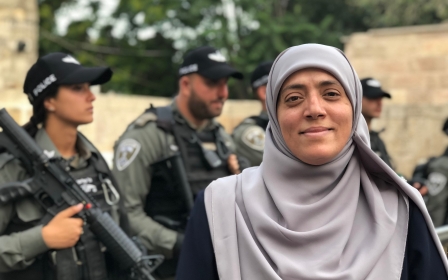How Israel exploits gender roles to discredit Palestinian female activists
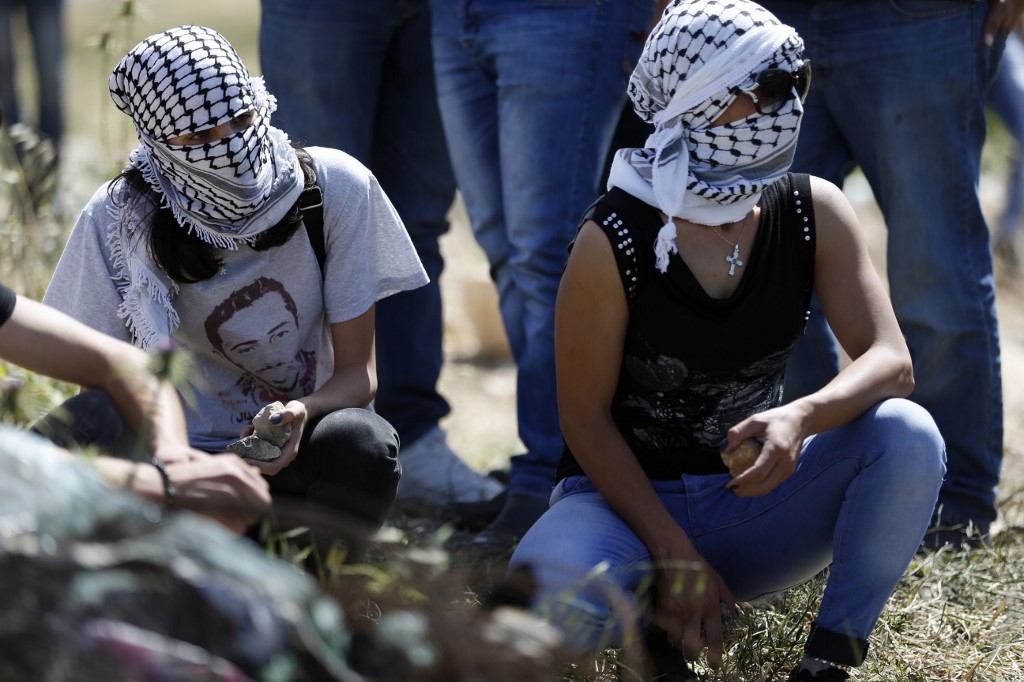
In A Dying Colonialism, Frantz Fanon describes the French colonial mindset in Algeria: “If we want to destroy the structure of Algerian society, its capacity for resistance, we must first of all conquer the women; we must go and find them behind the veil where they hide themselves and in the houses where the men keep them out of sight.”
In Palestine, Israel’s oppression of men and women differs in impact. Men are exposed to occupation-related violence due to their greater presence in the public sphere, while women are targeted in other ways. Oppression and colonialism exacerbate pre-existing gender inequalities, as political violence encourages a “protective” attitude that hinders women from participation in community life.
The occupation undermines the masculinity of Palestinian men by humiliating and belittling them. A man whose dignity is assaulted at a checkpoint can easily displace the sense of defeat onto one weaker than himself, often a woman at home.
Inciting scorn
The pervasive impoverishment of families under occupation, and the sense of a bleak future, encourages early marriage for girls and dropping out of school for boys.
New MEE newsletter: Jerusalem Dispatch
Sign up to get the latest insights and analysis on Israel-Palestine, alongside Turkey Unpacked and other MEE newsletters
Women are further insulted as Israeli politicians describe their wombs as demographic time bombs, as the Palestinian birth rate soars. This prejudice can impede the access of pregnant women to hospitals, causing them to give birth at checkpoints, with tragic death rates for both the infants and their mothers, as reported by the Lancet.
Commenting on the honour and 'natural' role of women reinforces inequitable gender stereotypes and deters women from political action
Gendered tactics are also commonly used to discredit Palestinian female activists, stripping them of their femininity and social standing, and inciting men to scorn them.
A 2018 Facebook post by a spokesperson for the Israeli occupation army, for example, included the following message alongside a picture of a female demonstrator from Gaza: “The good woman is the honourable woman, who takes care of her home and her children, and serves as a good example to them. However, the deprived woman who lacks honour does not take care of these things, acts wildly against her feminine nature, and cares not for how she is seen in society.”
Commenting on the honour and “natural” role of women reinforces inequitable gender stereotypes and deters women from political action. Societies and families are thus reminded to limit women to “traditional” roles to protect them from violence and abuse.
Political prisoners
The gender discrepancy is perhaps greatest, however, in the experience of political prisoners. I work with female former prisoners to assist with psychological care and legal documentation, and it has taught me a lot about how the Israeli military system uses gendered tactics and insinuations of cultural taboos to apply pressure on female prisoners and broader Palestinian society.
During decades of Israeli occupation, thousands of Palestinian women have been arrested; like men, they are jailed for their activism or detained to inflict pressure on activist relatives. Sometimes, the cries of a woman under “interrogation” are used to force her brother, husband, or son to confess.
Last summer, Mais Abu Ghosh, a university student, was tortured for a month; when her parents were brought to the interrogation centre, they could not recognise her. Strip searches and exchanging sanitary pads and toilet paper for information are common practices, to which many women prisoners have been exposed.
Imprisoned women especially suffer from the destruction of their social ties, often being held outside the 1967-occupied territory, in contravention of Article 76 of the Fourth Geneva Convention. Their relatives are often denied the necessary permits to visit them.
'I feel scared'
Female prisoners are also denied psychological help when they need it most. In January 2018, Israa Jaabis, a Palestinian mother from Jerusalem charged with attempted murder after her car exploded near an Israeli checkpoint in 2015, wrote a painful letter complaining that prison authorities deprived her from seeing her son, and expressing her great need of psychological help.
“I feel scared when I look at my face in the mirror, so imagine what others must feel when they look at me,” she wrote, noting that her medical and psychological needs were neglected, despite UN rules stating that prison authorities “shall endeavour to ensure that [female prisoners have] immediate access to specialised psychological support or counselling”.
Female prisoners also suffer from what takes place outside prison. Whenever a man is jailed, there is very often an over-extended woman compensating for his absence; but when a woman is put behind bars, her motherhood is questioned and her husband pressed to find a new wife to provide “a mother for his children”.
Although not uttered openly, the view persists that a female prisoner is reprehensible for leaving her children behind. A loud silence surrounds the possibility that she has been sexually assaulted in custody.
While Palestinian men are generally glorified after being released from prison, women in the same situation face further struggles to find a job, connect with a partner, and assume an active role in an increasingly “protective” society.
Structural violence
Oppression in Palestine has many fronts, through which structural violence and political repression hinder people’s liberties and freedom. Women - especially activists and former prisoners - face a multitude of intersecting struggles in their journey towards liberation.
More flexibility in gender roles would increase the resilience of Palestinians in the face of trauma, freeing women from the prison within
Feminist movements have shied away from advocating for the rights of Palestinian female prisoners, but it is these sources of power that can expose the gendered dimensions of the occupation in Palestine and ensure these inequalities and systems of oppression are not overlooked.
Palestinians should challenge such dynamics, which weaken our capacity to resist the occupation and subjugate us further. Gender divides power. Women’s lack of influence contributes to colonialism and other ethnic-class power relations.
More flexibility in gender roles would increase the resilience of Palestinians in the face of trauma, freeing women from the prison within so that they can become active agents of change and resistance.
The views expressed in this article belong to the author and do not necessarily reflect the editorial policy of Middle East Eye.
Middle East Eye delivers independent and unrivalled coverage and analysis of the Middle East, North Africa and beyond. To learn more about republishing this content and the associated fees, please fill out this form. More about MEE can be found here.


